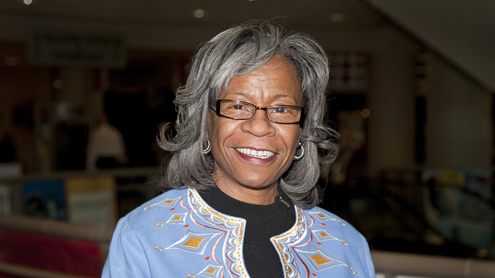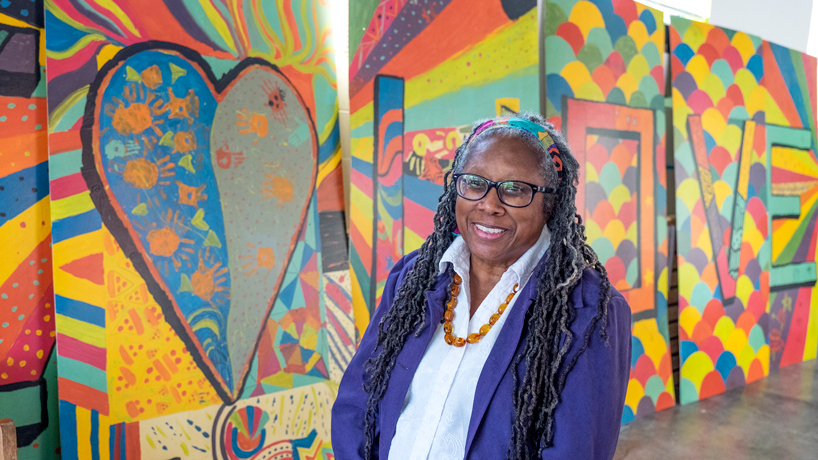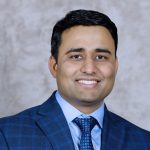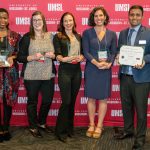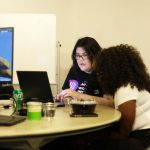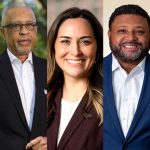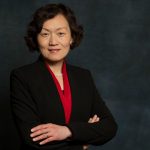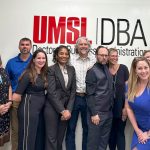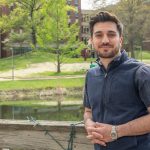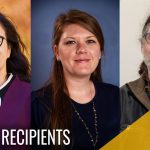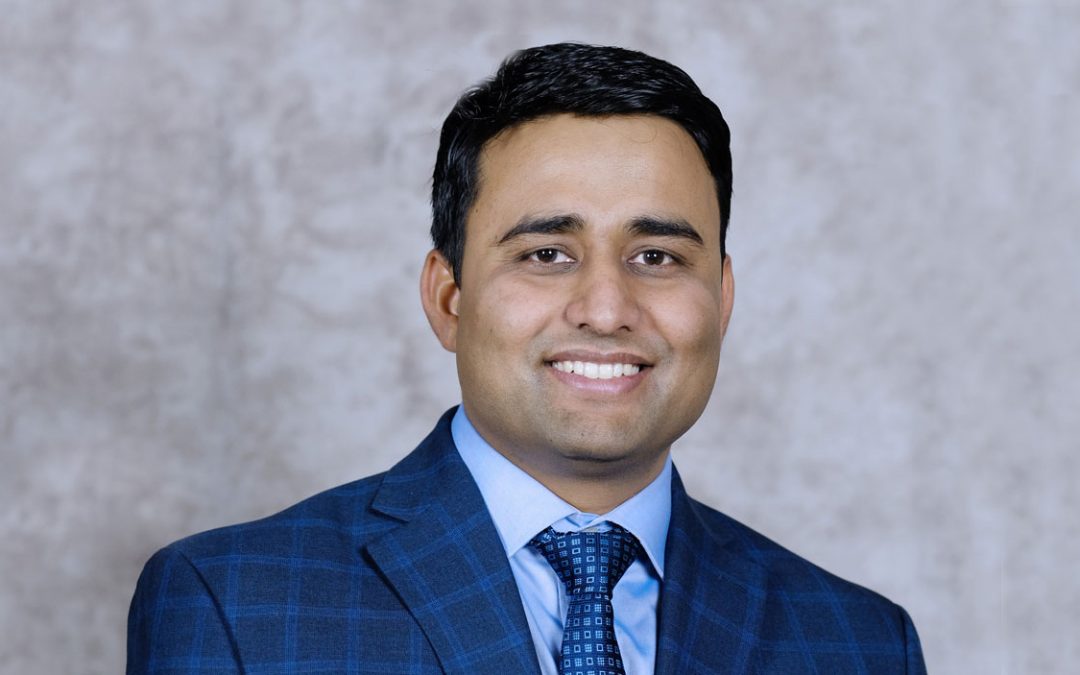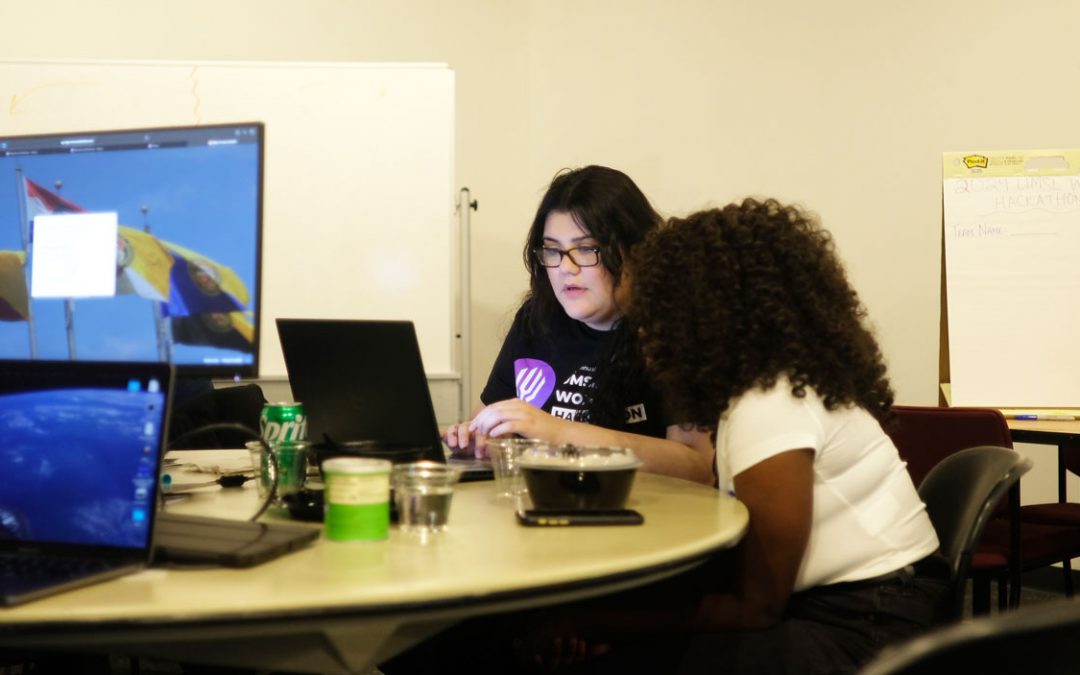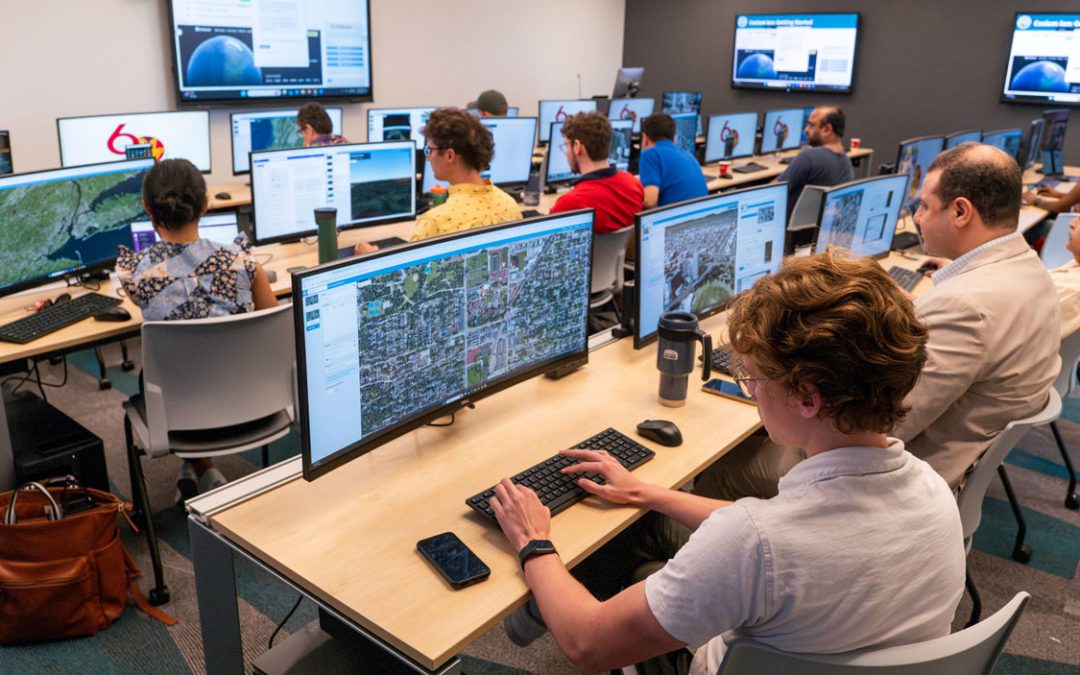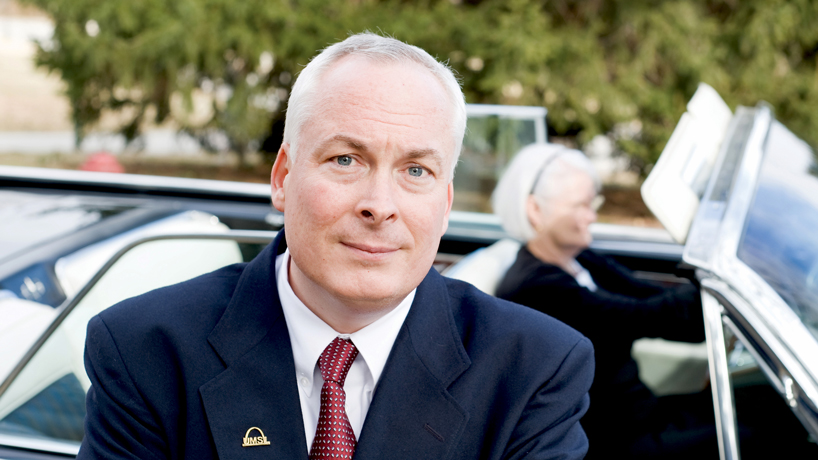
Tom Meuser, director of the gerontology graduate program, partnered with Washington University in St. Louis, Mid-East Area Agency on Aging and Better Family Life for “Elder Voices on Ferguson: Life Story Project.” (Photos by August Jennewein)
When asked about the importance of understanding the civil unrest that erupted in Ferguson, Missouri, after the death of Michael Brown, Sheilah Clarke-Ekong said, “If we don’t come to terms with the social pressures that led to this, there will be more riots – if not here, elsewhere.”
With this in mind, the University of Missouri-St. Louis associate professor of anthropology took the opportunity to serve as a co-investigator and interviewer for the “Elder Voices on Ferguson: Life Story Project.” The joint effort between UMSL and Washington University in St. Louis researchers seeks perspective on the events in Ferguson through the experiences of older adults.
From September 2015 to February 2016, 73 older citizens from Ferguson and surrounding areas between the ages of 64 and 93 were recruited to participate in a total of ten “Elder Voices on Ferguson” focus groups. The focus groups revolved around themes of safety, inter-generational communication, race relations, the role of media in crisis situations and more. Of the 73 participants, seven volunteered for one-on-one “Elder Voices on Ferguson: Life Story Project” interviews, which were filmed and voice recorded.
Tom Meuser, professor of gerontology, served as the principle investigator for the “Life Story” component of the program.
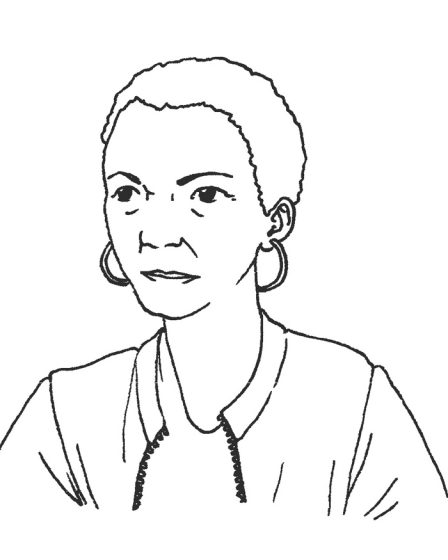
Community members who participated in the “Elder Voices on Ferguson: Life Story Project” discussed their personal experiences growing up and shared wisdom that could change society for the better. (Line art courtesy of Theresa James)
“A number of us in the gerontology education and service professions around St. Louis noticed that after Michael Brown’s death, many younger people were featured protesting and talking in the media,” Meuser said. “But we didn’t see many older people represented, even though they may have had similar experiences living through civil turmoil and have insights to offer.”
Meuser said that several barriers such as health complications, low mobility, isolation, lack of experience with new communication technology and fear of being vulnerable contributed to older citizens’ reluctance to share wisdom in the public eye.
“Historically, north [St. Louis] County has not always received sufficient attention with respect to social and community services. From a research standpoint, we wondered what older adults were thinking, feeling and experiencing a year after Michael Brown’s death. From a service perspective, we realized the need for greater attention to the elder needs in the area.”
Clarke-Ekong agrees that focusing on the needs of older adults could help restore the community. She believes that if younger residents performed simple in-home tasks such as changing light bulbs and unclogging sinks, older citizens might find the confidence and outlets to open up and share their knowledge.
“We should listen to the people who have lived in Ferguson for 30, 40, 50 years,” said Clarke-Ekong. “As members of the larger metropolitan area, educators and researchers are obliged to know what happened there and why it happened. Going forward, we can make concerted efforts to aid the healing process.”
Jackie Lewis-Harris, a co-investigator of the project and citizen of Ferguson, believes connecting older citizens with youth in the community to be a crucial component of the healing process. To that end, she invited participants of the “Elder Voices on Ferguson” program to meet with members of the Ferguson Youth Initiative for informal conversations in a relaxed setting. The associate professor of education, innovation and research hopes building a bridge between generations could create a path forward for the community as a whole.
“A lot of older citizens in Ferguson have undergone police brutality or harassment when they were younger,” said the associate professor of education. “Not a lot of things have changed in some ways, but they handled it differently, and they can give the youth alternative ways to work together to make a difference. They are realizing their opinions count, and they do have a voice.”
A website featuring the “Elder Voices on Ferguson: Life Story Project” interviews has now been launched.
For those interested in learning more about additional service and research that benefits elders, the Gerontology Program will host an introductory event in collaboration with Pierre Laclede Honors College at 12 p.m. Sept. 26 at the Museum Room in the Provincial House complex on UMSL’s South Campus.
Participating UMSL students can learn about minor and certificate options in gerontology and meet Marjorie Allen, a centenarian who worked as an educator for over 70 years. Lunch will be provided. The RSVP form for the event can be found here.

